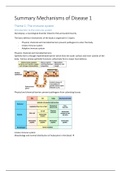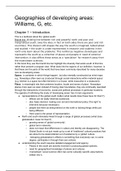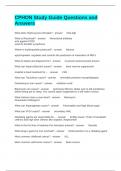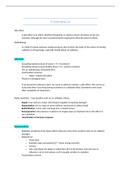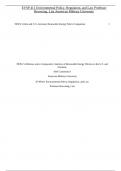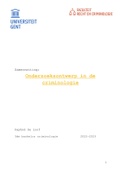What role does social class play in Marx’s theory of capitalism?
#1: Definition of social class
- Marx’s materialist theory of history
- “In the social production of their existence, men inevitably enter into relations of production”
- These relations of production refer to class relations
- Social class as being defined along economic lines, one’s relation to the means of production
- Split according to owners of capital and non-owners of capital
- Social class serves as the fundamental analytical tool to understand the base/superstructure
relationship which is key in Marx’s theory of capitalism
- Base/Superstructure —> economic sphere, relationships of production which in turn constitute
hierarchical social classes determine other non-economic spheres
- Sum of these relations of production constitute the economic base, from which arise legal,
political and religious superstructures
- E.g. political ideologies and policies in favour of the upper class bourgeoisie, government
bailing out private banks during the recession
- Primacy of economic relationship in capitalist society as we see how social class is defined
along economic lines/relationship to economic capital and how class affects other spheres of
society
- Therefore, fundamental to the understanding of Marx’s theory and critique of capitalism
#2: The bourgeoisie and proletariat relationship within the social class hierarchy is key in Marx’s
theory of capitalism as he looks at the implications of the exploitative relationship between the two
- Individuals enter into relations of production in order to produce the means of their existence
- Since one person can’t produce everything, division of labour has to occur
- Not only does everybody take on different jobs (e.g. assembly line workers), some live off the
fruits of others’ labour
- Exploitation by the bourgeoisie at the expense of the proletariat
- Bourgeoisie do not work but yet own more economic capital than the proletariat —> one of the
key contradictions of capitalism that Marx points out
- Since bourgeoisie owns the means of production (i.e. capital), they are able to control whatever
the proletariats/their labourers produce and how they produce it
- Links back to Marx’s theory of alienation, a key idea in his theory of capitalism
- Alienates labourers from the product and the process of production
- Labourers unable to gain a sense of fulfilment due to the lack of autonomy in the production
process
- Bourgeoisie also has control over the exchange value of the product, placed at a higher price
than the wages paid to the worker which results in surplus value that is disproportionately
appropriated at the expense of the labourer
- Leads to commodity fetishism, the misconception that commodities have inherent exchange
value in them
- Labourers see each other as competition despite common interests
- “the ideas of the ruling class are in every epoch the ruling class” (false consciousness)
- Perpetuates this idea, obscuring the exploitative labour relationship, preventing class
consciousness and perpetuating inequality, maintaining their dominant position
#3: Eventual conflict between the social classes will eventually result in social revolution
- Planted the seeds of destruction
- Marx’s understanding of class relations as hostile and antagonistic due to directly opposing
economic interests
- Will eventually result in “an era of social revolution” and a transformation in the mode of
production

